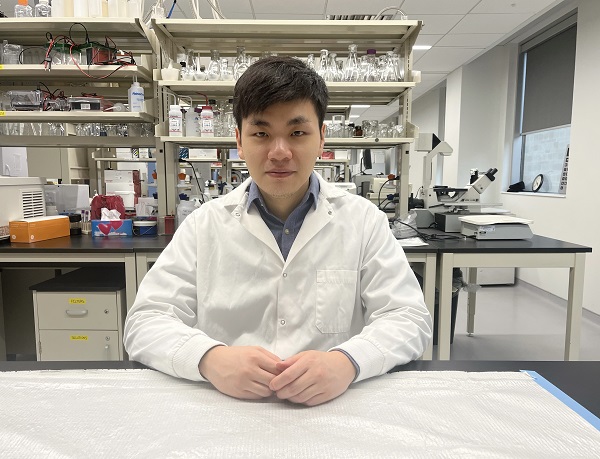
Diabetes and gum disease
Cover image: Tolerogenic dendritic cell illustration by Kateryna Kon / Science Photo Library / Getty Images
Today, over thirty per cent of Canadians live with diabetes or prediabetes. Living with diabetes can put you at risk of oral health problems, including periodontitis, also known as gum disease. Periodontitis is a serious infection that damages the soft tissue around teeth. Without treatment, it can destroy the bone that supports teeth which can lead to tooth loss.
Conventional treatment of periodontitis focuses on removing dental plaque. When the source of bacteria is gone, it is expected that healing will happen. However, many immunocompromised patients with diseases like diabetes have chronic inflammation. This occurs because high glucose levels in diabetic patients weaken their white blood cells by polarizing them towards an inflammatory state. For those patients, systemic inflammation, and the lack of regulatory immune cells following periodontal treatment often delay healing.
“Patients with diabetes are unable to flip the switch to the healing phase promptly following periodontal treatment." says Yi Zhu. "The exact mechanism behind this healing ability has not been fully discovered yet, but it is known that the immune system plays a significant role.” adds Zhu, U of T PhD student in Connective tissue and regenerative medicine.
Zhu is working on developing a treatment for immunocompromised patients who have been diagnosed with periodontitis. He wants to develop a hydrogel to regulate this excessive inflammation and help patients transition from a pro-inflammatory to an anti-inflammatory environment, which can be beneficial to promote healing.
Zhu is supervised by assistant professor Annie Shrestha from the Faculty of Dentistry, and professor Cynthia Goh from the Department of Chemistry. He is currently working at the Shrestha Lab.

Mimicking a diabetic high glucose environment
To develop this hydrogel, Yi’s team did characterization experiments to learn about some of its properties. Then they moved on to in-vitro cell studies.
“We wanted to see how the cells would react to the hydrogel. We observed that the hydrogel was able to tone down immune cells even under high glucose conditions that imitate diabetes” says Zhu.
After animal studies, their preliminary findings showed that the hydrogel was able to successfully recruit tolerogenic immune cells locally, based on dendritic cell and T-cell markers.
Zhu’s research findings “Injectable thermosensitive hydrogel to modulate tolerogenic dendritic cells under hyperglycemic condition” have been published in the Biomaterials Science Journal, for the Royal Society of Chemistry this year.
In phase two of his study, his team will be collaborating with a research group from Brazil, that has experience in establishing a diabetic periodontitis model in vivo.
To learn more about research opportunities at U of T Dentistry, explore our research page.
Written by Nina Ambros.